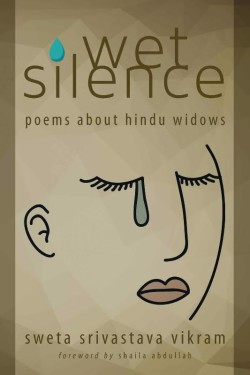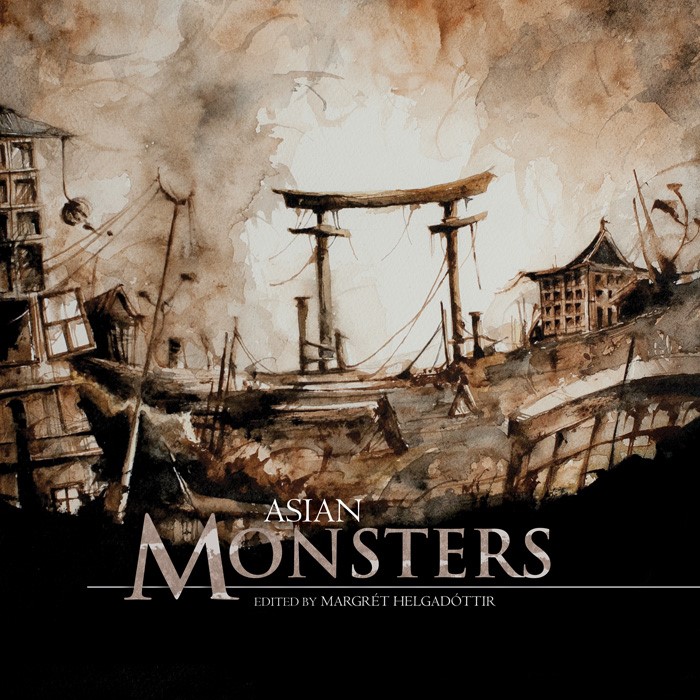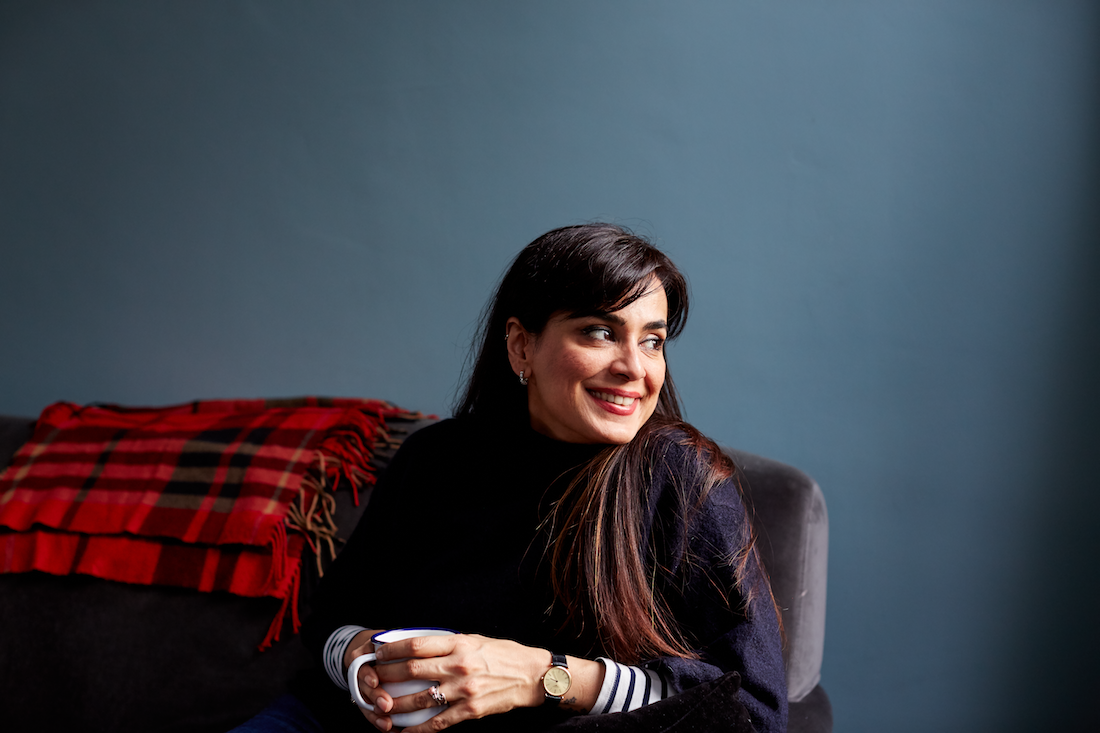Q. Tell us about the inspiration behind your latest poetry collection, wet silence?
I would say there were several inspirations accumulated over the years that inspired “Wet Silence.” But the main was what NovelistChimamanda Adichie’s beautifully shared in one of her Ted Talks: the fear of just one story representing an entire culture. India is a big country and the social structure is complex. I realized from my conversations with friends, colleagues, peers and mentors that when non-Indians think of Indian women or Hindu widows, they mostly think of oppression, violence, and clichéd injustice (women have to shave their heads, live in an ashram, wear white etc. etc.). But when I looked around at Hindu widows whom I knew or the stories I was told, I didn’t see them embody the clichés…they led “normal” lives. But patriarchy continued to play a heavy hand.
Q. Wet Silence, is in itself such a powerful image. Did you have any expectations about what you might learn from the widows you spoke to?
To be honest, no. Sensuality and lack of companionship, though real, these are taboo topics in the South Asian culture. I felt grateful for all that they, the widows, shared—can’t imagine it was easy for any of them. I know it wasn’t an easy book for me to write.
Q. What surprised you most about the lives of widowed women and their stories?
In Wet Silence, I share stories about Hindu widows from well to do, well-educated, urban families (primarily Boomers and Gen X). I learned that “good life” is a relative term. It is so easy to judge people, their circumstances, and choices from the outside. Just because some widowed women, seemingly, lead a comfortable life or are allowed to wear colors & keep their hair long or permitted to eat meat, doesn’t mean they necessarily have a “good life.” Physical comfort and emotional comfort are two separate things. Most of these widows weren’t given the choice to find another partner. No one wants to address the diminishing dignities in their lives. Often, not even the widows themselves.
Q. How did you go about writing poems based on the stories you were told? Was it an easy task to tackle the emotion? How did you use the emotions you were feeling?
I wanted to lend a voice to unheard stories of widowhood from an emotional standpoint. In many ways, I had to become the pain and the story to translate all of those emotions into poems. I had the responsibility to stay authentic yet share the unheard tales of widowhood with the world. I knew the stories needed to be told. I shut myself down during the creative phase and kept contact with only a handful of people.
Q. What were your hopes for the collection while you were writing?
The stories pick me—versus me choosing to write about a certain topic—and then turn it into an irresistible urge to write. I am aware that I approach widowhood amongst Hindu widows from a groundbreaking point of view in Wet Silence, so I didn’t know what to expect. Yes, I hoped the book would give strength to those looking for it but that was about it. Yoga teaches us to not be attached to the outcome of our efforts. And, I have truly started to believe in that philosophy. I wrote the book with utmost devotion and honesty. I believed in the power of these stories and the need for the poems to be shared with the world. I did my best, but I also understood that once the book is out in the world, there is very little I can do about it. Once you take the “number pressure” off, your experience with everything changes.
Q. One word I came back to time and time again after reading the poems was ‘strength’. The women conveyed in these poems, despite tackling daily sexism, and abuse are strong women. Were you amazed by their resilience?
Yes and no. Yes, because every strong woman, no matter her age, caste, race, religion or ethnicity, amazes me. No, because I have written about women’s issues even before in my last collection of poems, No Ocean Here (Modern History Press, 2013), where I was exposed to female strength and resilience.
Q. Is theirs a voice that has been silenced for too long in Indian society?
India is a patriarchal society at the end of the day. Yes, I feel many of the issues pertaining to women are either ignored or silenced even today.
Q. I especially enjoyed ‘Your Wife’. Can you tell us more about the story behind it?
Thank you so much. The story is about a woman who remains a mistress to a wealthy man throughout her youth and adult life. Yes, he offers her all the luxuries but there is no room for her in his life because he is a married man with children. He doesn’t make any commitments even though she is loyal to him. This upsets her, especially when she sees his happy family and knows she’ll never have that aspect with him. After he dies, this woman can’t even mourn her lover openly, despite being devoted to him all these years, because she isn’t legally his widow.
Q. Which poet or author would you say influences your work?
Depending on what I write about, different poets influence me, but Pablo Neruda is a constant inspiration. His play on language and ability to make even the mundane so exotic, I admire so much.
Q. Finally where do you produce your best work?
Noepe Center for Literary Arts in Martha’s Vineyard is my absolute favorite place in the world to write poetry. The director, Justen Ahren, has created a beautiful, creative, and safe space for writers and poets.
Sweta Srivastava Vikram (www.swetavikram.com), featured by Asian Fusion as “One of the most influential Asians of our time,” is an award-winning writer, three times Pushcart Prize nominee, Amazon bestselling author of 10 books, novelist, poet, essayist, and columnist. Sweta is also a certified yoga teacher who shares the love and power of yoga with trauma survivors. A graduate of Columbia University, when Sweta is not doing yoga, cooking, traveling, writing books, or posts for magazines, teaching creative writing, or giving talks on gender equality, she works as a digital and content marketing consultant. Sweta lives in New York City with her husband and can be found on Twitter [@swetavikram] and Facebook (https://www.facebook.com/Words.By.Sweta)


